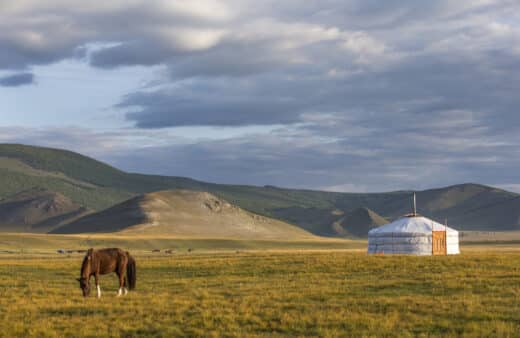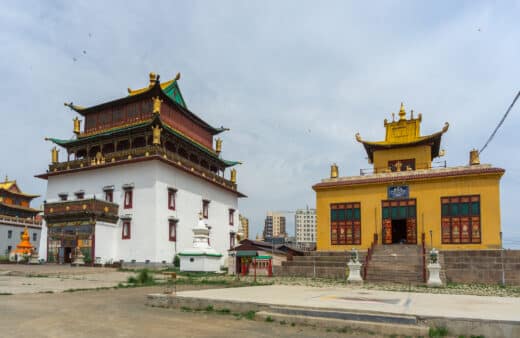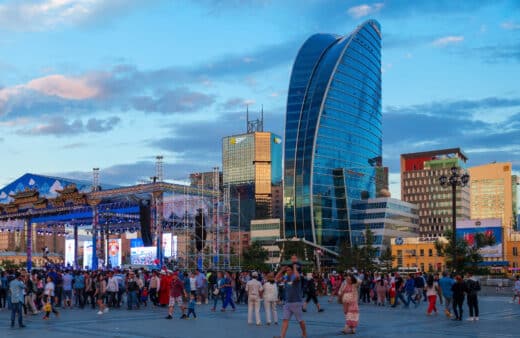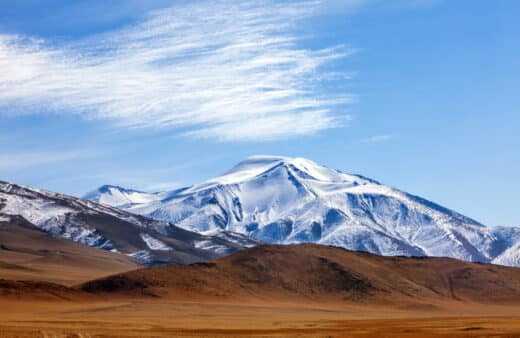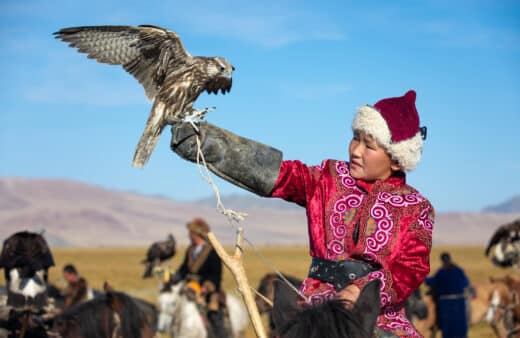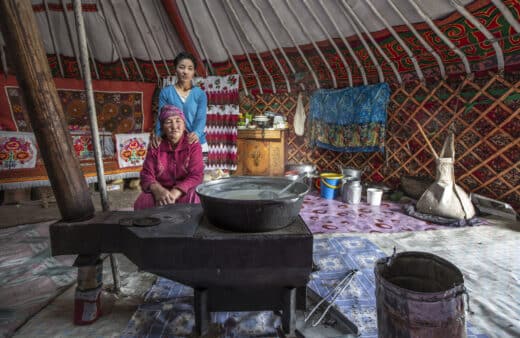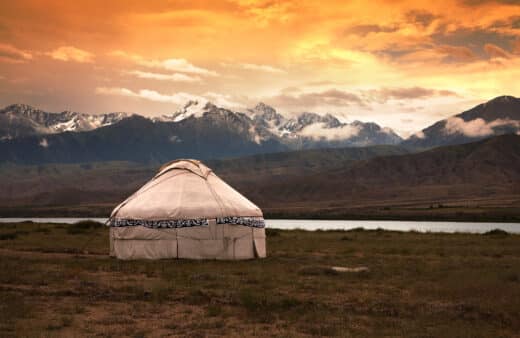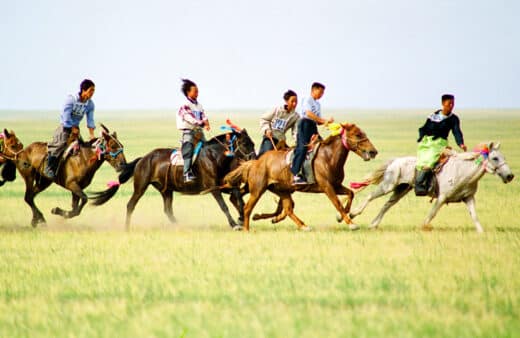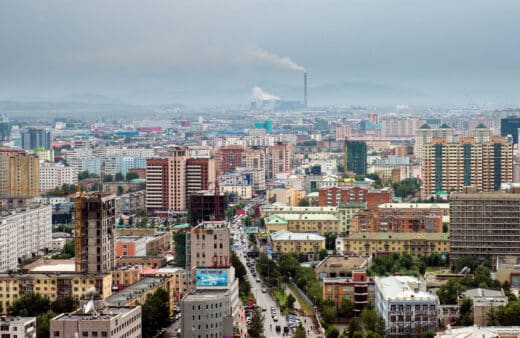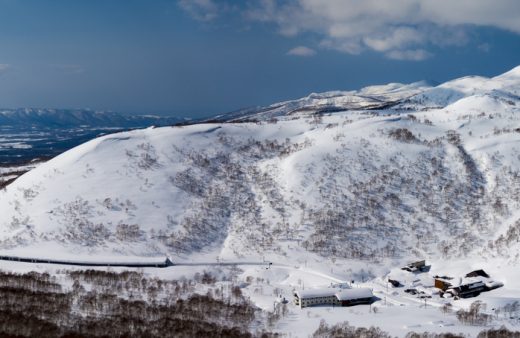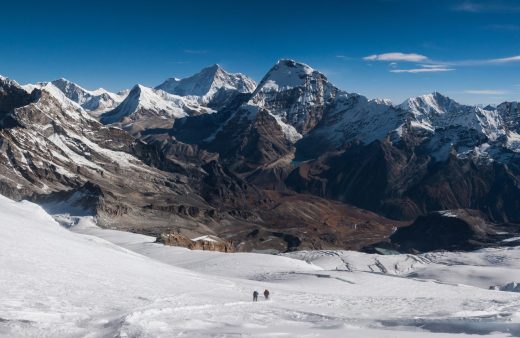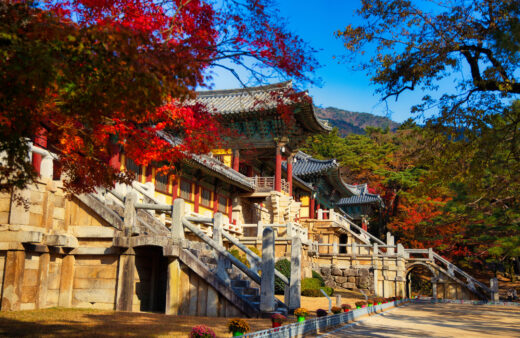- Trip description
- Travel itinerary
- Price includes
- Gallery
Mongolia enjoys over 250 sunny days a year, earning it the nickname “Land of the Blue Sky.” However, the blue sky doesn’t always indicate warmth. Mongolia’s climate is extreme, and while most of the country is hot in summer, temperatures can drop to -30 degrees Celsius in winter.
Canyons
Culture and history
Desert
National parks
Travel itinerary
Flight to Ulan Bator
Mongolia is a beautiful country. We will start our adventure with passport and baggage check-in, followed by a flight to the capital of Mongolia.
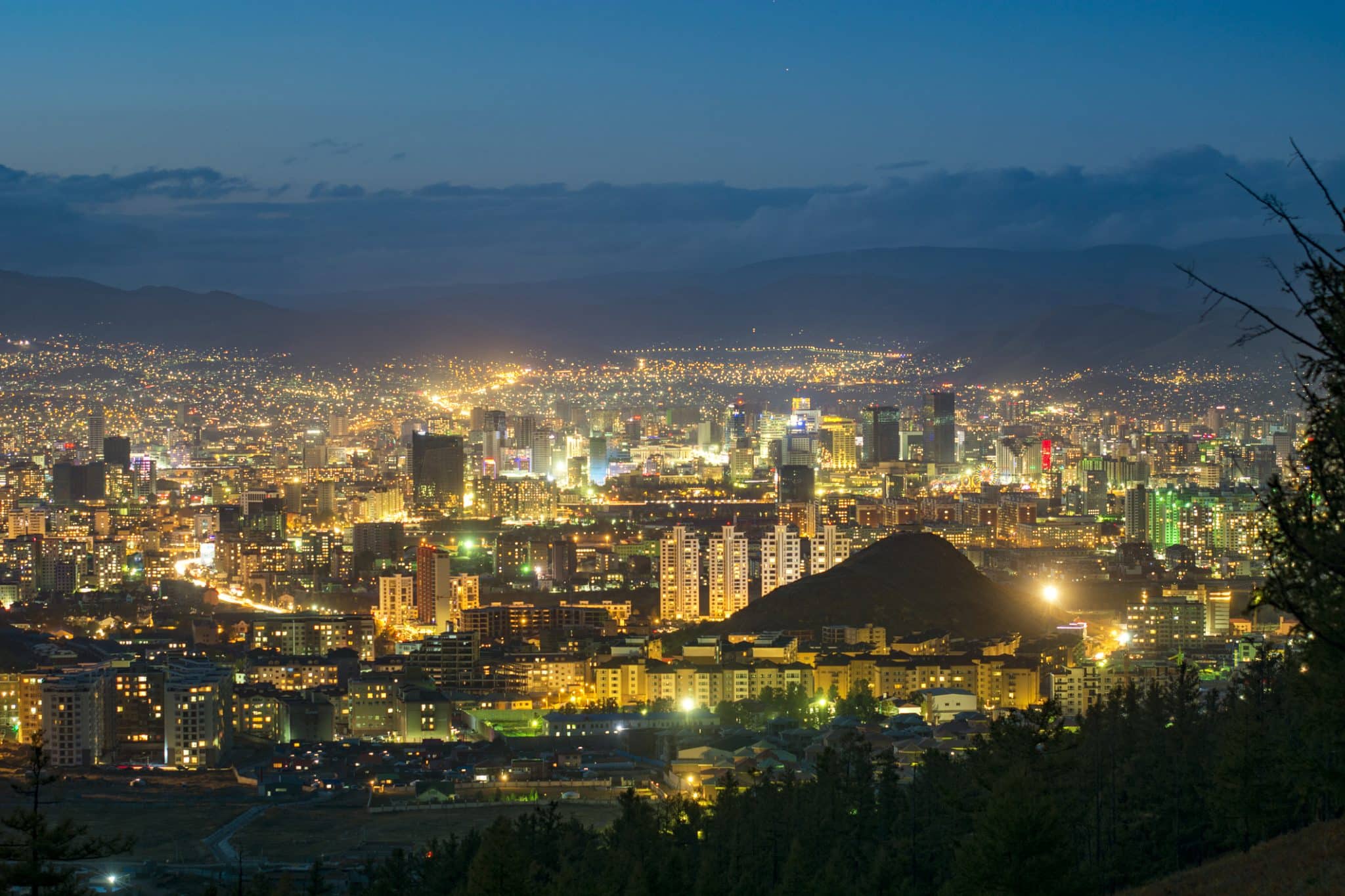
Ulan Bator
Arrival in Ulan-Bator, the capital of Mongolia, and transfer to the hotel. Free time for the rest of the day. Overnight stay.
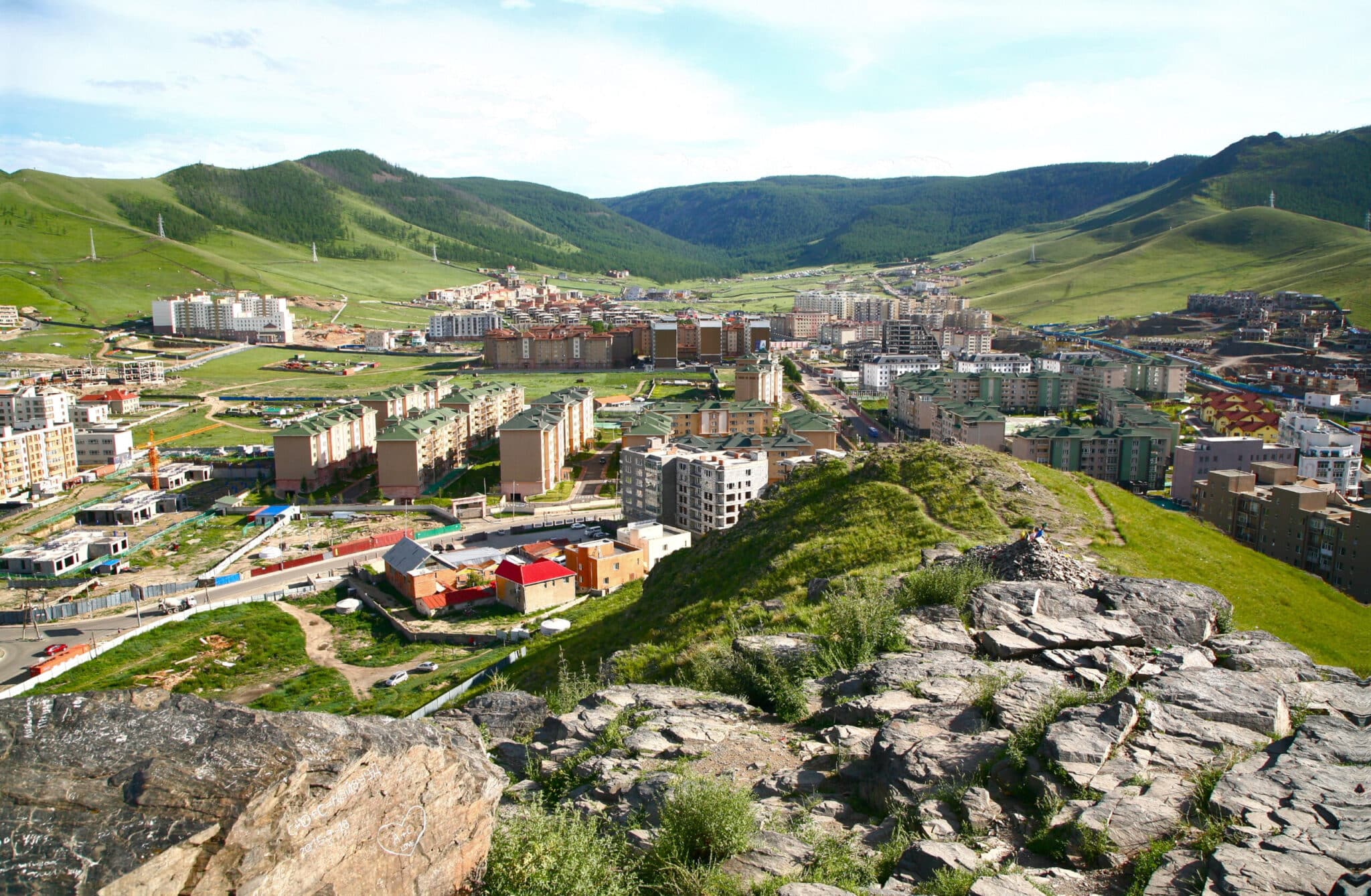
Ulan Bator
After breakfast, we will attend the opening ceremony of the Naadam Festival, which takes place annually from July 11th to 13th at the National Sports Stadium and is one of the most popular festivals in Mongolia. The festival opens with the procession of the “Nine White Banners,” representing the nine Mongolian tribes, from Sukhbaatar Square to the Stadium.
The main highlight of the festival is horse racing, but attention is also drawn to dancers, riders, athletes, and musicians. It’s essential to note that Naadam originated from activities like archery, horseback riding, and wrestling, initially performed during various ceremonies, such as weddings.
Later on, Naadam evolved to include training people for combat. Today, it primarily commemorates the 1921 Revolution when Mongolia became an independent state.
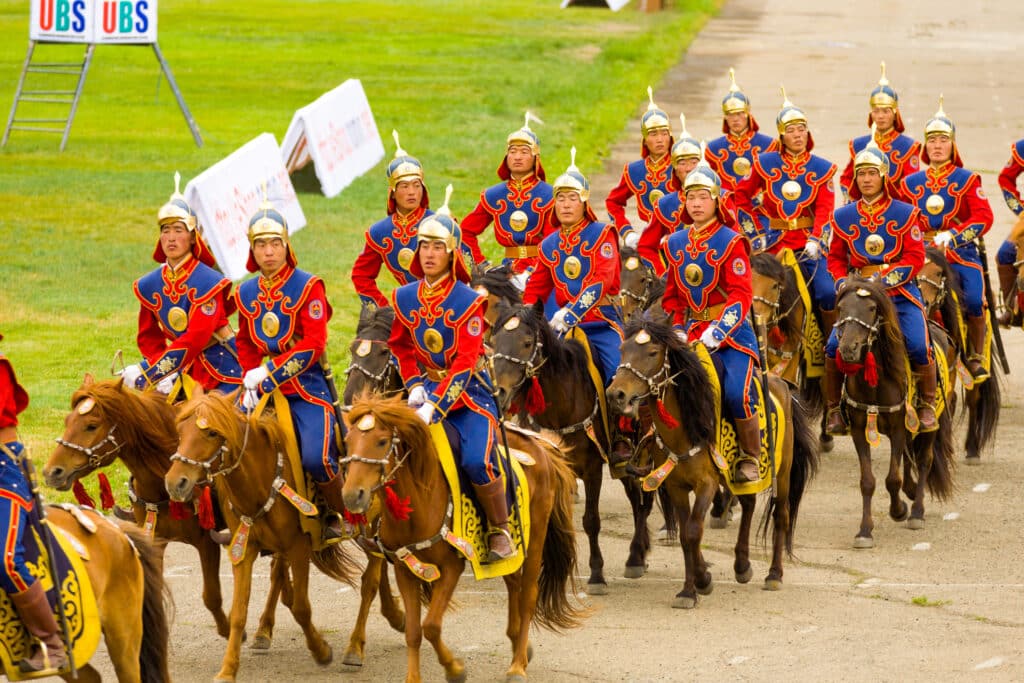
Tsagaan Suvraga
After breakfast, we will head to Tsagaan Suvarga (White Stupa), located in Ulziit Soum, Dundgobi Province. The rock formations here create magnificent landscapes, with dimensions reaching up to 400 meters in width and 60 meters in height.
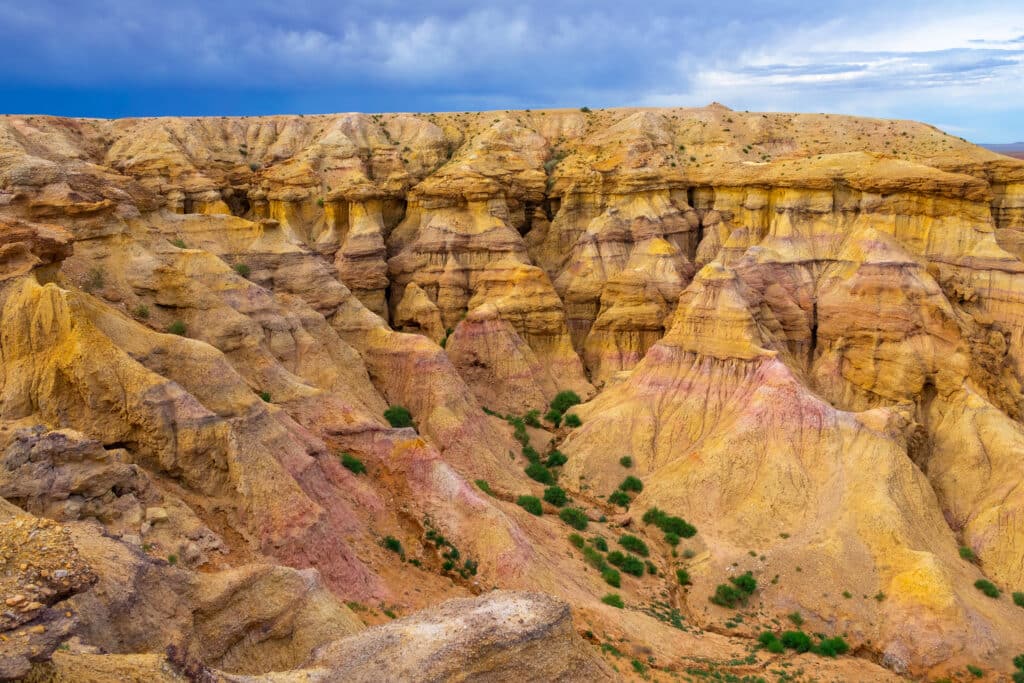
Yol Valley
Today we will visit Yolyn Am Canyon, located 45 km from the Dalanzadgad province at an altitude of 2800 meters above sea level.
The name of the canyon comes from the Lammergeier, which in Mongolian is precisely Yol. The gradually narrowing valley turns into such a narrow gorge that the sun’s rays barely reach its bottom.
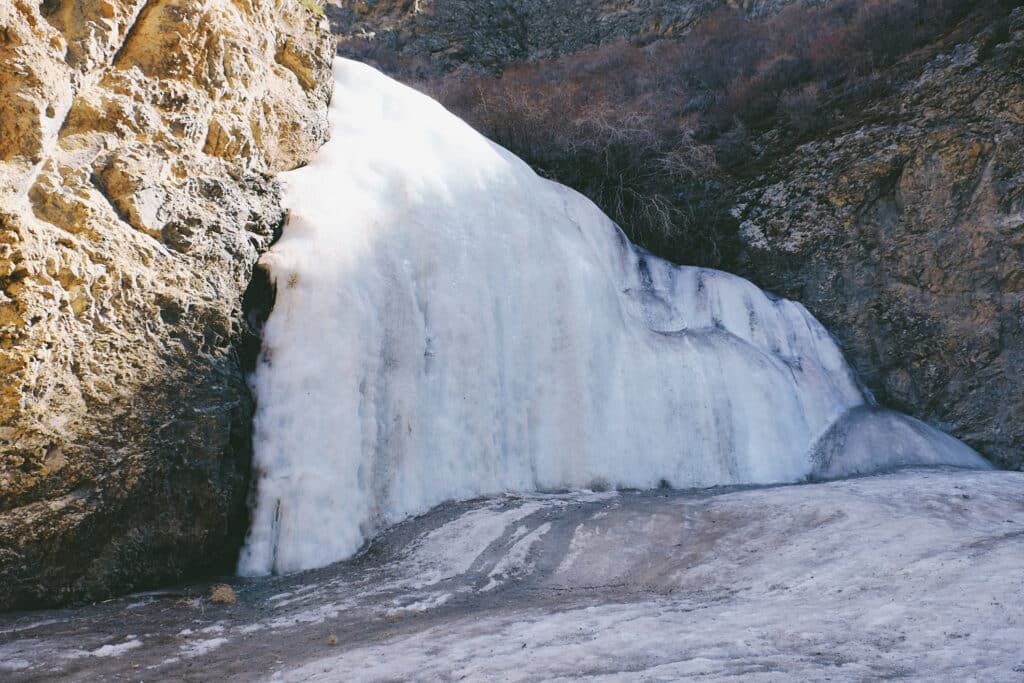
Konghor Dunes
After breakfast, we will head to the Khongor Sand Dunes in 4WD vehicles. With a width of 12 km and a length of 100 km, these dunes are called the Singing Dunes.
They are the largest and most spectacular dunes in Mongolia. Getting to the top takes from 40 minutes to 1 hour, but the view is breathtaking. We will have a camel ride here, and if the weather permits, we might also spend the night in tents.
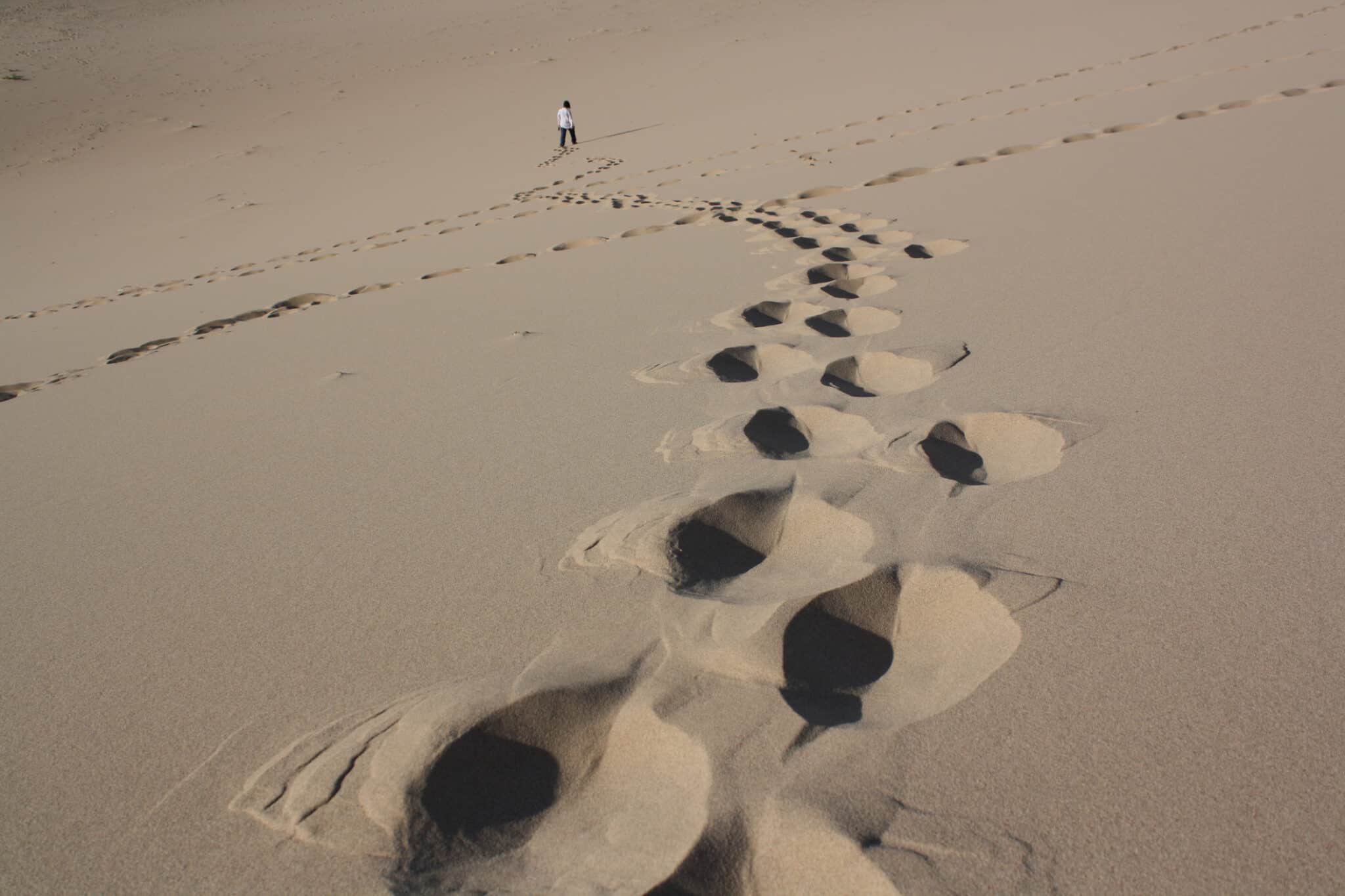
Bayan Zag, Flamming Cliffs
Bayanzag is named the “Flaming Cliffs” by the paleontologist Roy Chapman Andrews. The reddish-orange color of the cliffs makes this place look like it’s from another planet.
This is where fossils of creatures like the Protoceratops (a dinosaur with a distinctive frill on its head) and the Oviraptor (a dinosaur believed to have fed on the eggs of other animals) were discovered.
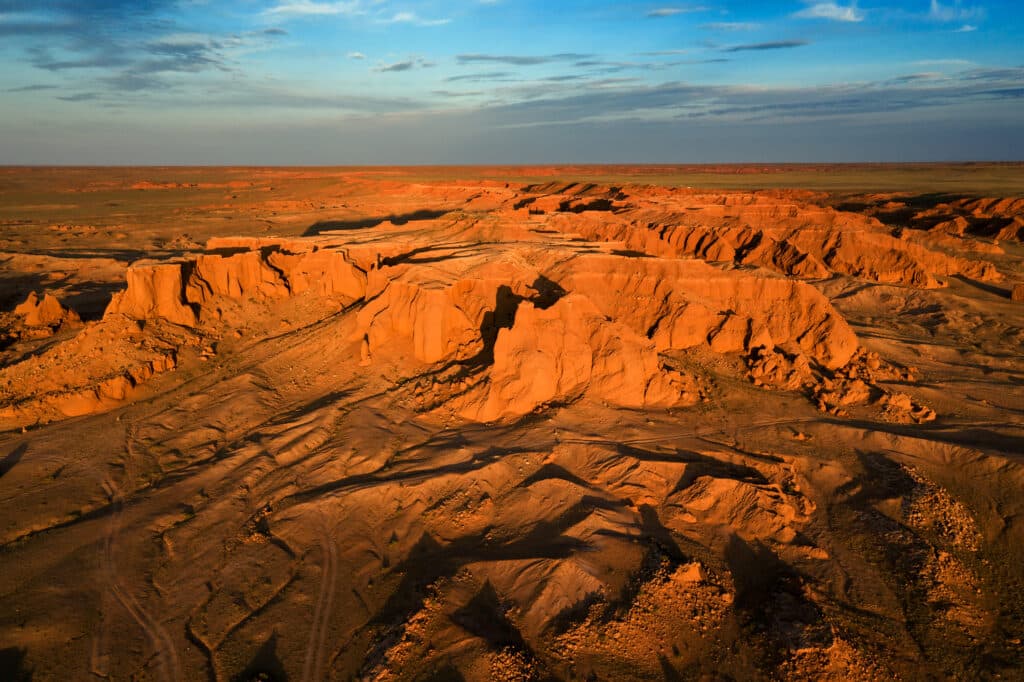
Klasztor Ongi
After breakfast, we will head to another location, the Saikhanovoo and Ongi temples in central Gobi. This monastery, once considered the largest in Mongolia, was founded in 1660 and consisted of two temple complexes on the north and south banks of the Ongi River.
This complex was completely destroyed in 1939 by Khorloogiin Choibalsan, the then-president and leader of the Mongolian People’s Party. Over 200 monks were killed, and many survivors were imprisoned or forced to join the communist-controlled army.
In the river and on the surrounding hills, you can see a large number of ruins, including a tall stupa. In the 1990s, the decision was made to rebuild the monastery. Currently, 11 monks reside in the monastery.
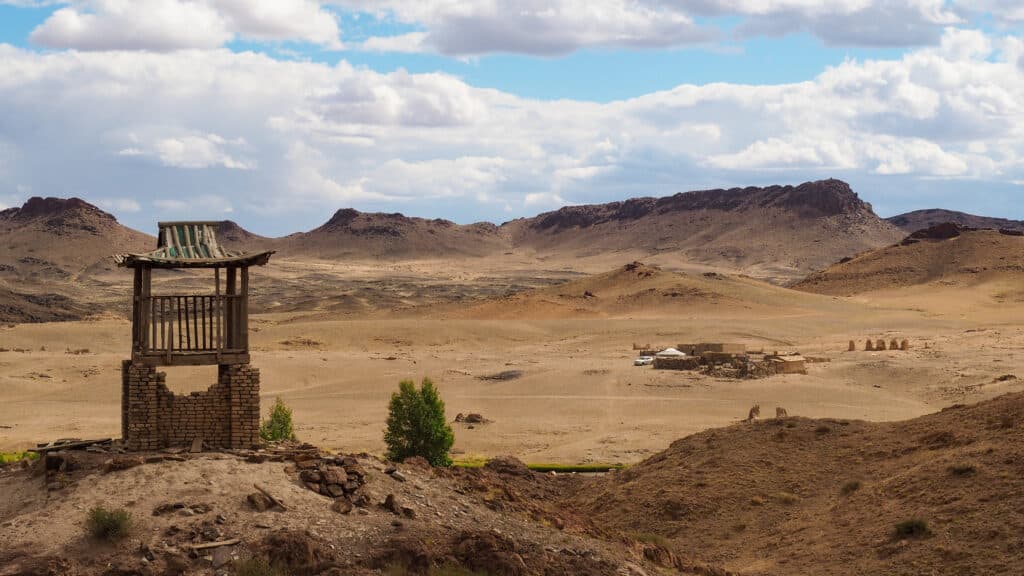
Kharkhorin
Today we will set out early to reach Kharhorin. Along the way, we will see the magical Tovhon Monastery, founded in 1653 by Zanabazar.
Good times lasted until the capital was moved to Khanbaliq, when Kharkhorin was abandoned and later destroyed by vengeful Manchu soldiers in 1388.
What remained of Kharkhorin was then used to build the Erdene Zuu Monastery, a huge complex from the 16th century that was severely damaged during the Stalinist purges.
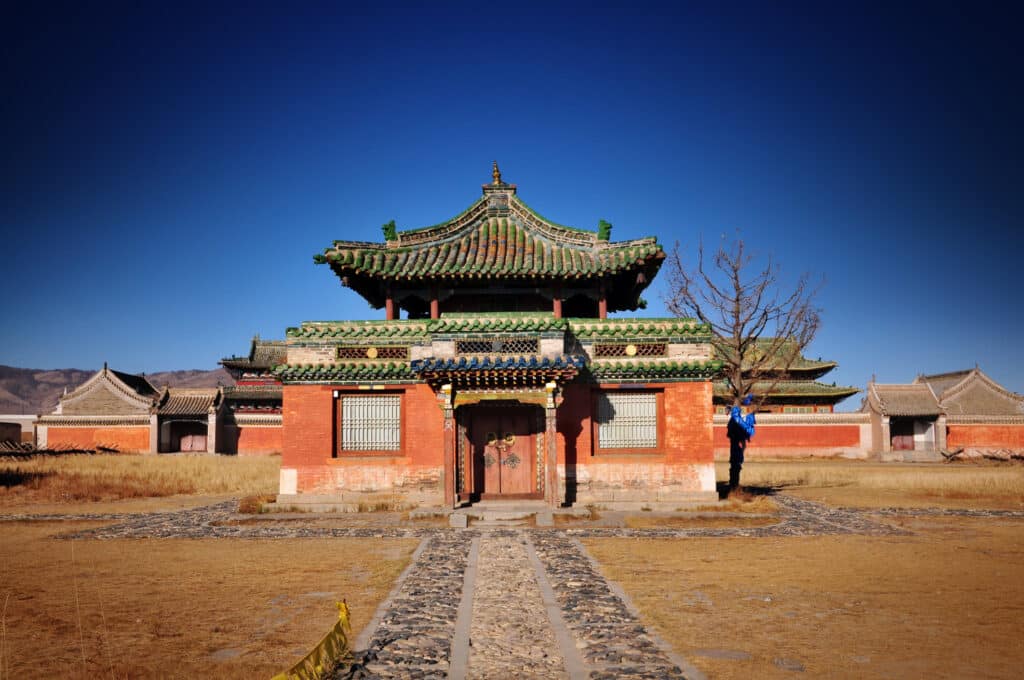
The Khustai National Park
The Mongolian government established the Khustai National Park as a specially protected area in 1993. The park spans the Khentii Mountains and covers the western edge of the Mongolian steppe on the border of Altanbulag, Argalant, and Bayankhangai Soums.
Within its 50,600 hectares, the park is home to 459 species of plants, 85 species of lichens, 90 species of mosses, and 33 species of fungi. It also hosts 44 species of mammals, 217 species of birds, 16 species of fish, 2 species of amphibians, and 385 species of insects.
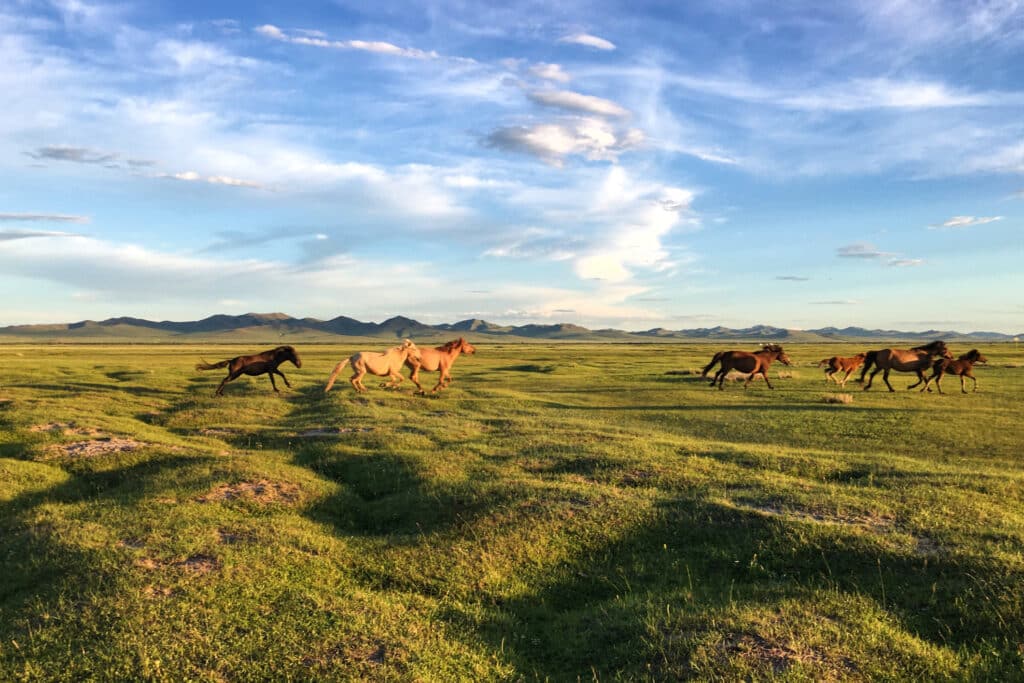
Ulan Bator
Today, we are heading back to the capital of Mongolia, Ulaanbaatar. Here, we’ll shop for souvenirs and embark on our journey back home.
Feel free to join Rek Travel Adventure for other trips. Perhaps next time, we can explore together and see the penguins in the Falkland Islands?
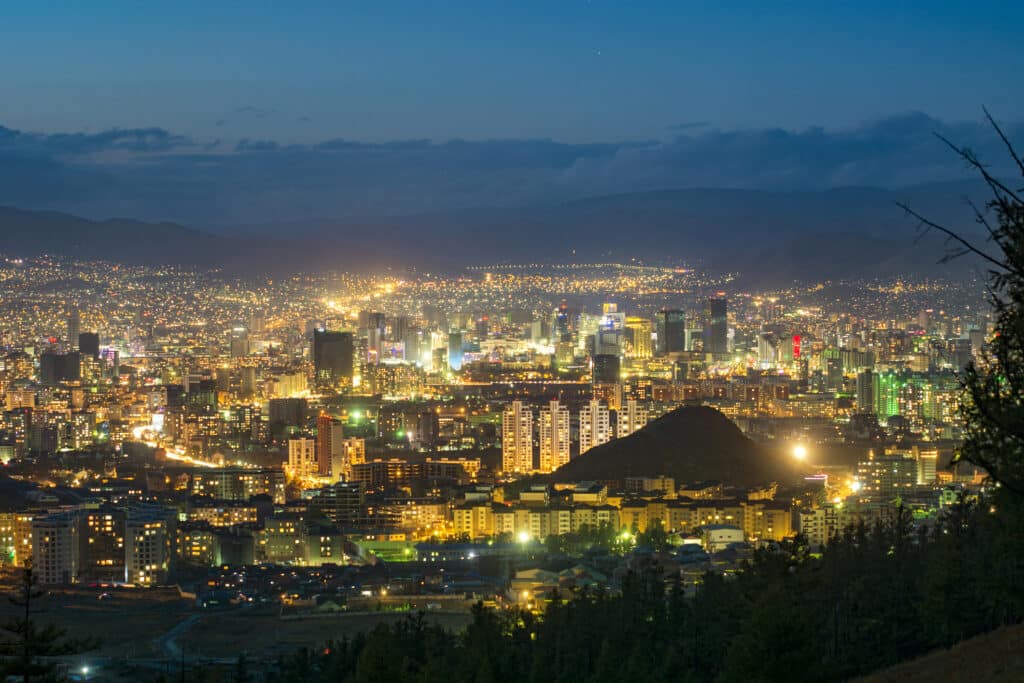
Arrival home
Mongolia 2024: the Land of Genghis Khan
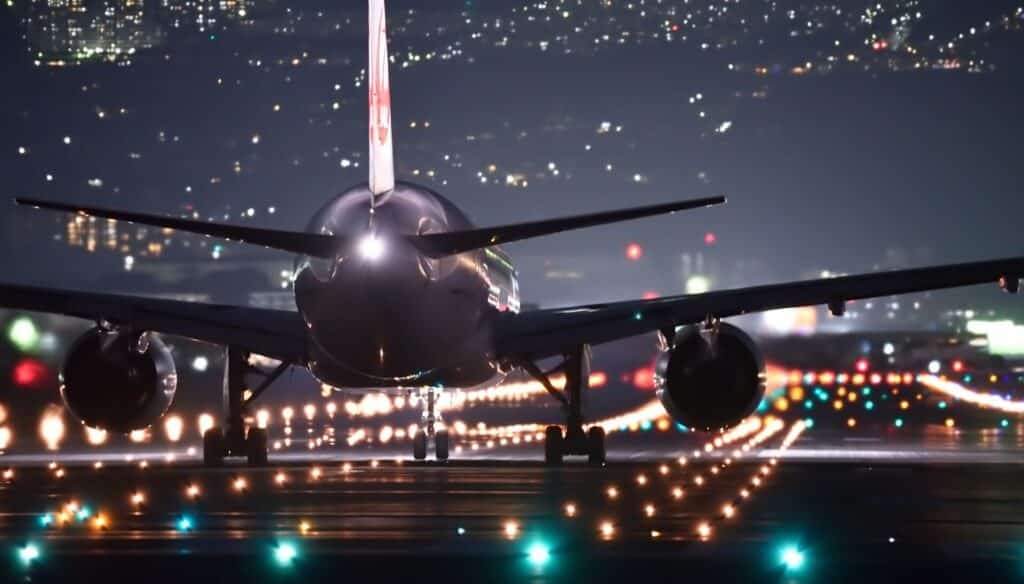
Selected tour route
The company is not responsible for any loss of customer's property due to burglary, theft, loss, etc. We also do not assume responsibility for any losses incurred by the customer in motels. Rek Travel reserves the right to change the itinerary due to circumstances beyond its control. The customer is obliged to comply with the tour regulations. Tour participants are insured according to the requirements of the US Department of Transportation for a total amount of $500,000 (insurance policy available upon request). Participants may opt for additional insurance coverage for hospital and outpatient treatment of illnesses acquired during the tour, as well as accidents in visited facilities (further information available at the office) for an additional fee.
 Rek Travel Adventure
Rek Travel Adventure
